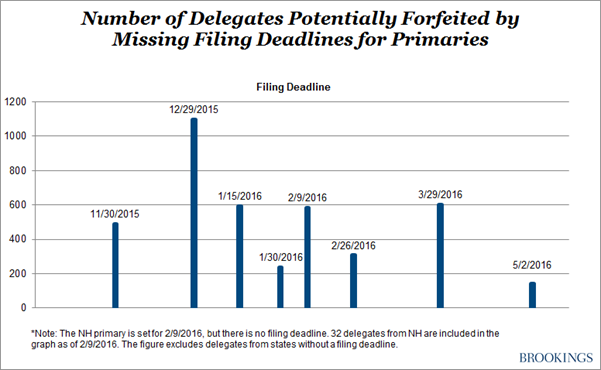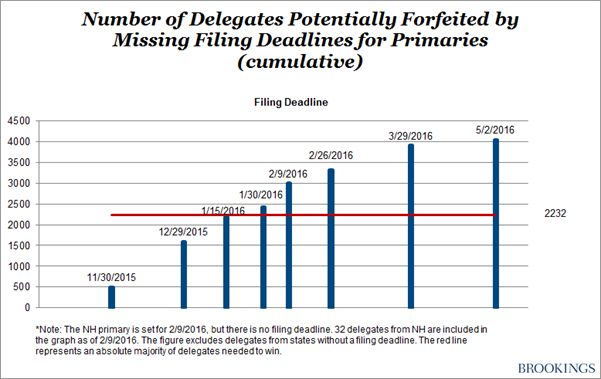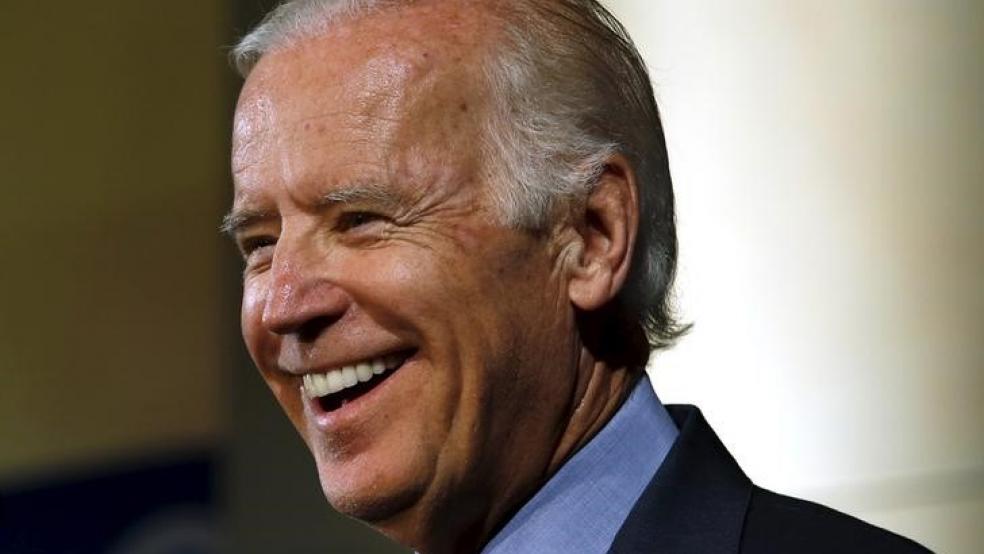From the sound of things, Vice President Joseph Biden is still struggling with a decision on whether to enter the race for the 2016 Democratic presidential nomination and challenge the faltering Hillary Rodham Clinton.
Still mourning the death of his 46-year-old son Beau from brain cancer, Biden told “Late Show” host Stephen Colbert Thursday night that any serious candidate would have to give “110 percent of themselves” to enter the race at this late date -- and that “I’d be lying if I said I knew I was there.”
Related: New Poll Shows Clinton Has Lost Her Edge Over GOP Candidates
Biden may ultimately decide he does have the “fire in his belly” to make a third and final bid for his party’s nomination against Clinton and Sen. Bernie Sanders of Vermont, who has overtaken Clinton in the polls in Iowa and New Hampshire.
Waiting until late September or early October to see if former Secretary of State Clinton’s campaign implodes or Sanders’ falters is a big risk for any potential candidate. It’s not just because of the obvious challenges of having to assemble a strong national campaign organization on the fly or raise hundreds of millions of dollars to mount an effective media strategy.
One of the more important– albeit mundane and dreary – tasks in the early going is to get a candidate’s name on the ballot for the early, critical primary races in New Hampshire, South Carolina and a handful of other southern states.
A basic political fact is that candidates can give the best speeches and run the cleverest ads, but if they miss a deadline for filing, they can miss out on a passel of delegates who will ultimately help choose their party’s nominee. The late Sen. Edward M. Kennedy of Massachusetts learned that lesson the hard way when he challenged Democratic President Jimmy Carter for their party’s nomination in 1980.
Related: Surprised Bernie Sanders Is Leading the Polls? So Is He
“Putting aside the question of how serious Hillary’s problems are . . . there are serious structural problems that will, very shortly, keep anyone who is not already in this race from getting in,” Elaine Kamarck, a senior fellow in governance studies at the Brookings Institution, wrote on a blog last week.
“Conventional wisdom says a candidate has to get in early in order to raise money. That’s true for unknowns but any of the nationally recognized candidates . . . could, thanks to the Internet, raise a fair amount of money pretty quickly,” she added. “The more serious problem is that presidential nominees these days get elected in public primaries and public primaries have filing deadlines.”
While Biden continues to agonize over whether to enter the race, Sanders and his advisers are planning a delegate strategy and assembling a grass-roots team throughout the country that is modeled in part on President Obama’s highly successful 2008 campaign, according to The Washington Post.
Apart from Sanders’ substantial campaign organization in Iowa and New Hampshire, he is increasing his presence in South Carolina and Nevada and beginning to target four delegate rich states with primaries or caucuses on March 1 -- Colorado, Massachusetts, Minnesota and Vermont, The Post reported.
Party primary elections are used to elect slates of delegates committed to particular candidates who then help nominate their party’s presidential standard-bearer at the summer national conventions. Under Democratic Party rules, delegates are divvied up proportionately among the candidates based on vote totals by congressional district – meaning that even if a candidate doesn’t win a primary contest statewide, he or she can still pick up a portion of the total delegates.
So missing a filing deadline to appear on a ballot is a mortal sin in presidential politics – one that usually means forfeiting precious delegates to the conventions. And because the process of collecting a sufficient number of valid signatures on a petition can be laborious, time consuming and costly, getting a candidate on a ballot isn’t always a snap.
Related: Sanders Pulls Ahead in Iowa, but a Tougher Clinton Aims to Even the Score
For even the better organized campaigns, the filing deadlines can come fast and furious, beginning in early November and December.
Here are two charts prepared by Brookings that highlight the risks of missing filing deadlines for primaries:
Graph #1 shows filing deadlines for Democratic primaries along the horizontal axis and number of delegates potentially forfeited along the vertical axis. The New Hampshire filing deadline hasn’t been announced yet. By the end of November, a candidate who is not in the race and on ballots has forfeited around 500 votes. By the end of December, a candidate not on primary ballots has forfeited more than 1000 votes.

Graph # 2 shows that a candidate who has missed filing deadlines through the end of January has potentially forfeited 2,232 delegates, the number needed to win the Democratic nomination.






